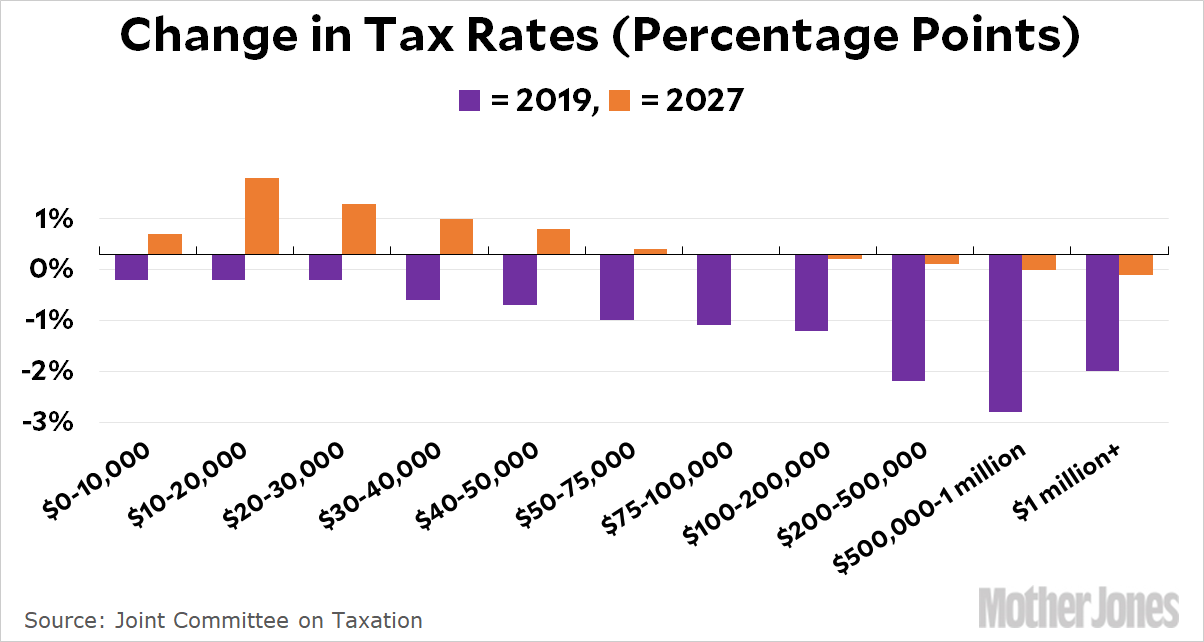White House economic adviser Gary Cohn just can’t figure out why the Republican tax plan is so unpopular:
“To be honest with you, I don’t know,’’ Cohn said Wednesday at a Washington event hosted by Axios, when asked why the plan lacked public support. Middle-income Americans “are getting the largest percentage tax savings of anyone in the whole distribution. So we have clearly not communicated that.” Only 24 percent of Americans think the plan is a good idea, and almost two-thirds believe it was designed to help the wealthy, according to an NBC News/Wall Street Journal poll released Tuesday.
I dunno. Does Cohn really not get it? Or is he just playing his assigned role? The thing is, there’s a very narrow sense in which Cohn is correct. If someone is paying taxes of 5 percent, and you give them a tax cut of 0.5 percent, that’s a reduction of a tenth. If a millionaire is paying 30 percent and you give them a tax cut of 1.5 percent, that’s three times as big but it’s a reduction of only a twentieth. But if Cohn assumes that this is how people view things, he’s either dumb or delusional.
So let’s go over it for him. I won’t bother showing you projections from the TPC since they’re all a bunch of commies, but here are the estimates from Congress’s own Joint Committee on Taxation:

The immediate impact of the tax bill is to give small benefits to the middle class and big benefits to the rich. The impact in 2027 is for the middle class to see a tax increase while the rich continue to get a small tax cut. No matter which year you choose, the rich do a whole lot better than the middle class.
Plus there’s the fact that the whole bill is designed as a big cut in corporate taxes, which the public has been opposed to by huge margins for the entire past year. Bottom line: this is not hard to understand. The public dislikes the tax bill because it’s obviously a gigantic giveaway to corporations and the rich.
And as long as we’re on the subject of Cohn, he also said this:
He said if he could change one thing about the plan, he would strip the carried-interest provision in the tax code that largely benefits Wall Street investors. Trump, who promised to end the provision during his presidential campaign, was unable to convince lawmakers to make the change, Cohn said. “We’ve been trying to cut carried interest — we probably tried 25 times,” Cohn said. “We hit opposition in that big white building with the dome at the other end of Pennsylvania Avenue every time we tried.”
I don’t recall so much as a single leak suggesting that anyone in the White House ever pushed for this. But let’s assume Cohn is telling the truth. It means that on an issue of huge importance to the president (25 times he tried!) he couldn’t get Congress to throw him even this small bone. Is Trump really treated with such immense disdain by his fellow Republicans? Apparently so. He must have really been pissed off about this. I know he’s the shy, retiring type, but you’d think he might have at least tweeted something about it.













